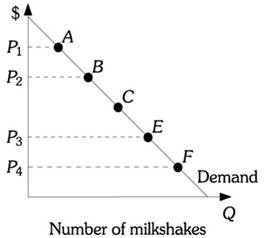Suppose that a foreign monopolist supplies the entire domestic market (there is no domestic production). The home country then applies a $10 tariff on imports from the foreign monopolist. The home country will be better off if:
a. the terms-of-trade gain is less than the deadweight loss from the tariff.
b. the price change is more than the deadweight loss of the tariff.
c. the deadweight loss is more than the price change from the tariff.
d. the terms-of-trade gain is more than the deadweight loss from the tariff.
Ans: d. the terms-of-trade gain is more than the deadweight loss from the tariff.
You might also like to view...
Classical economists reject the laissez-faire theory that the economy would self correct to full employment without government interference
a. True b. False Indicate whether the statement is true or false
Why did the U.S. government use rationing for some foods and consumer goods during World War II?
a. to guarantee each civilian a minimum standard of living in wartime b. to keep sellers from raising prices on necessary goods c. to earn more money to support the military d. because the English government had also declared rationing
A key assumption of most economic analysis is that people act rationally, meaning they respond to incentives.
Answer the following statement true (T) or false (F)
Refer to the information provided in Figure 5.4 below to answer the question(s) that follow. Figure 5.4Refer to Figure 5.4. The demand for milkshakes is unit elastic at Point C. If a store reduces the price of a milkshake from P3 to P4, its total revenue will
Figure 5.4Refer to Figure 5.4. The demand for milkshakes is unit elastic at Point C. If a store reduces the price of a milkshake from P3 to P4, its total revenue will
A. remain constant. B. either increase or decrease. C. decrease. D. increase.